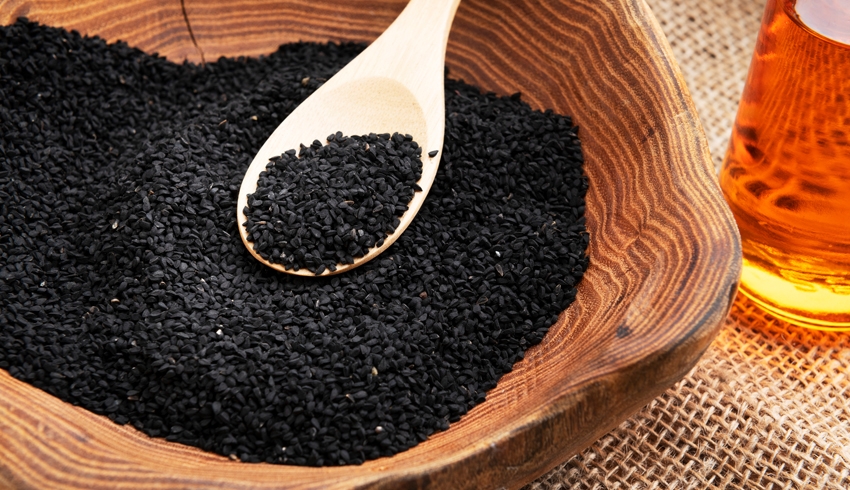Do you like to be the first to know about new trends? Then you’ll want to know about black seed oil. Black seed oil, also known as black cumin seed oil, is not a new ingredient, but it has become a very popular ingredient in skin care lately, and for good reason.
This ancient herbal oil that adorned Cleopatra’s skin has been traditionally used throughout the Middle East, Africa, and Asia. And now, its amazing benefits for the skin are being recognized worldwide. Explore the various uses of black seed oil and gain practical insight on how to incorporate it into your daily skin care routine.
What is black seed oil? | beauty effect | health benefits | How to use | supplement
What is black seed oil?
Black seed, an annual flowering plant, is native to western Asia and parts of Europe (primarily Bulgaria and Romania). Ancient civilizations, including Egypt and Mesopotamia, valued the versatility of black seeds and used them not only in cooking. Medicinal effect. The real magic is inside the fruit, which is filled with tiny black triangular seeds that contain powerful nutrients such as linoleic acid, oleic acid, and thymoquinone. Rich in antioxidants, antibacterial properties, and omega fatty acids, black seed oil can not only fight acne and unclog pores, but can also be used for hydration. Let’s take a closer look at the specific beauty benefits of black seed and how its oil can be a transformative element in your skin care routine.
Beauty benefits of black seed oil
Are you worried about clogged pores? Some oils have a reputation for making nasal congestion worse, but with black seed oil, you don’t have to stress. Black seed oil eliminates symptoms associated with clogged pores thanks to its antibacterial and anti-inflammatory properties. Think of excess oil production and blemish formation. Azadeh Shirazi, MDA board-certified dermatologist speaks forbes Black seed oil may reduce symptoms of skin conditions such as psoriasis, eczema, vitiligo, and acne. Black seed oil is also known for its benefits for hair and scalp health. The phytochemicals in black seed oil strengthen hair strands from root to tip, reducing breakage and split ends, while moisturizing and revitalizing dry, brittle hair.
To understand Black Seed magic, we need to focus on its core components. Two of his most famous are linoleic acid and thymoquinone. linoleic acidA type of omega-6 fatty acid that reduces excess sebum production that causes acne, possibly thanks to its antibacterial and anti-inflammatory properties. Thymoquinone, on the other hand, plays a role in preventing age spots and provides preventive measures to clear your skin. Thymoquinone is known for its antioxidant, antibacterial, and anti-inflammatory properties, which enhance the oil’s ability to unclog pores. The combination of these ingredients unclogs pores and reduces pore formation.
Health benefits of black seed oil
Although research on the health effects of black seed oil is limited, existing research suggests that black seed oil may have beneficial effects. Below are some notable insights from the current research. health line:
- promotes wound healing
- Supports hair health maintenance
- Helps reduce acne
- helps reduce inflammation
- improve blood sugar control
- Contributing to vitiligo treatment
- Reduces eczema symptoms
- Helps treat psoriasis
- Reduces the risk of metabolic syndrome
Keeping in mind the potential health effects of black seed oil, let’s explore how to effectively incorporate it into your skin care routine.
How to use black seeds for daily skin care
Now that you know the benefits of using black seed oil, here are some tips to incorporate black seed oil into your daily life.
- Patch test first: Before applying black seed oil to your face or body, do a patch test on a small area of your skin.
- Use for scalp care: You can also apply black seed oil to your scalp before shampooing to nourish your scalp and promote healthy hair growth.
- Dilute the oil: If you use black seed oil directly, consider diluting it with a carrier oil such as coconut oil, jojoba oil, or sweet almond oil, especially if you have sensitive skin.
- Dab the stain with a cotton swab: Black seed oil has antibacterial properties, so applying it lightly to acne areas with a cotton swab can help reduce inflammation and eliminate blemishes. Consult your dermatologist before applying this oil to your skin.
- If you have a skin disease: Similarly, if you have conditions such as eczema or psoriasis, consult your dermatologist before applying this oil to your skin.
Supplements: How much black seed oil should I take?
Patch testing a new skin care product is sufficient in most cases, but when it comes to taking black seed oil, consult your doctor before starting any supplements to ensure it is suitable for your personal health needs. We recommend that you do so.
Usually, adults Consume Take 1 to 2.5 grams of black seed oil orally daily for 4 to 12 weeks. Alternatively, black seed powder is typically taken at a dose of 1 to 2 grams daily for 8 to 12 weeks. We recommend consulting your health care professional to establish the most effective dosage for your specific health condition.
Is black seed right for you?
With historical acclaim and contemporary acclaim, Black Seed offers an attractive proposition. Although black seed is generally considered safe and well-tolerated, it is essential to be aware of potential allergies when ingesting or applying it topically. If you are pregnant, breastfeeding, or taking medication, it is important to seek medical advice before incorporating black seeds into your daily routine.
Looking to improve your dark skin or change up your skin care routine with natural products? Contact your local Eminence Organics Spa Partner to find out how.


